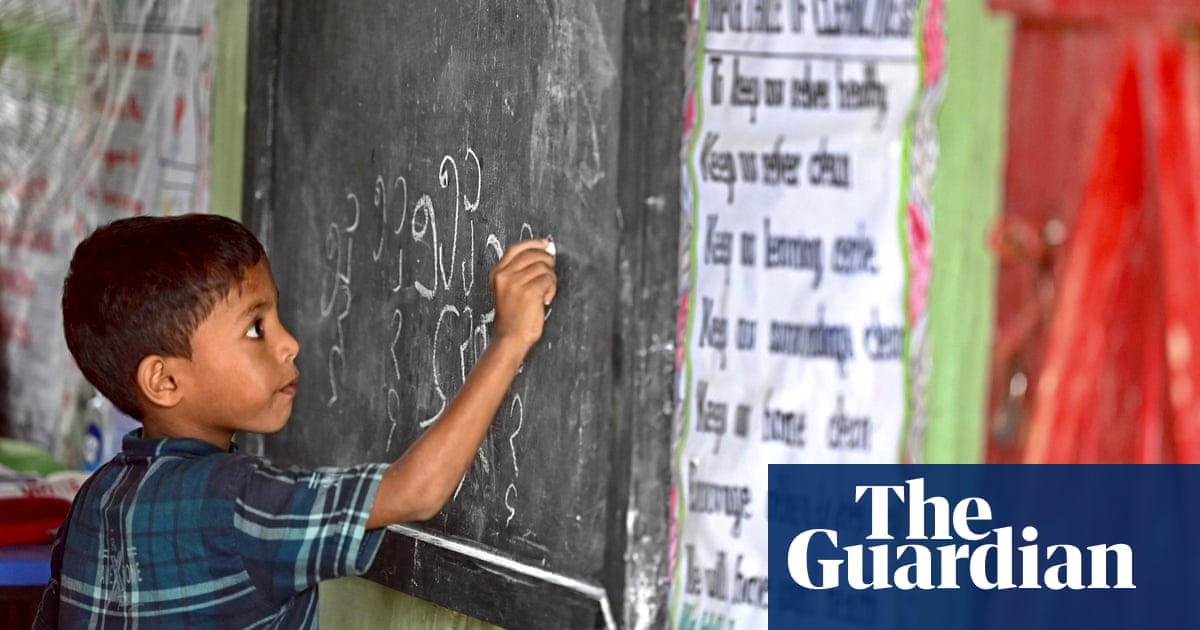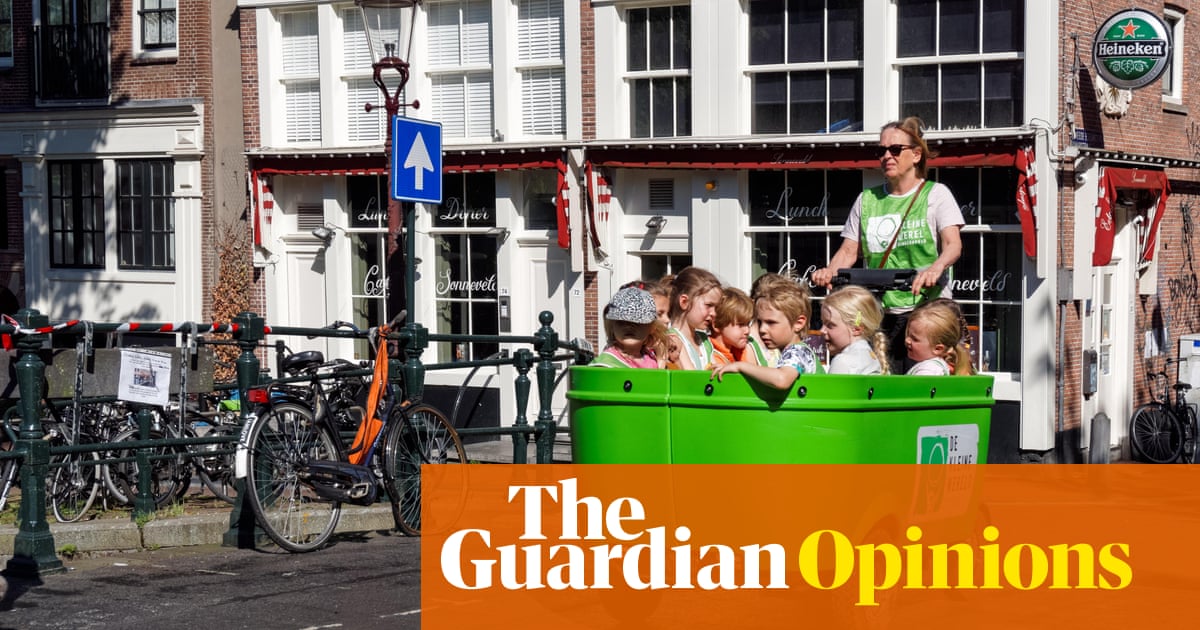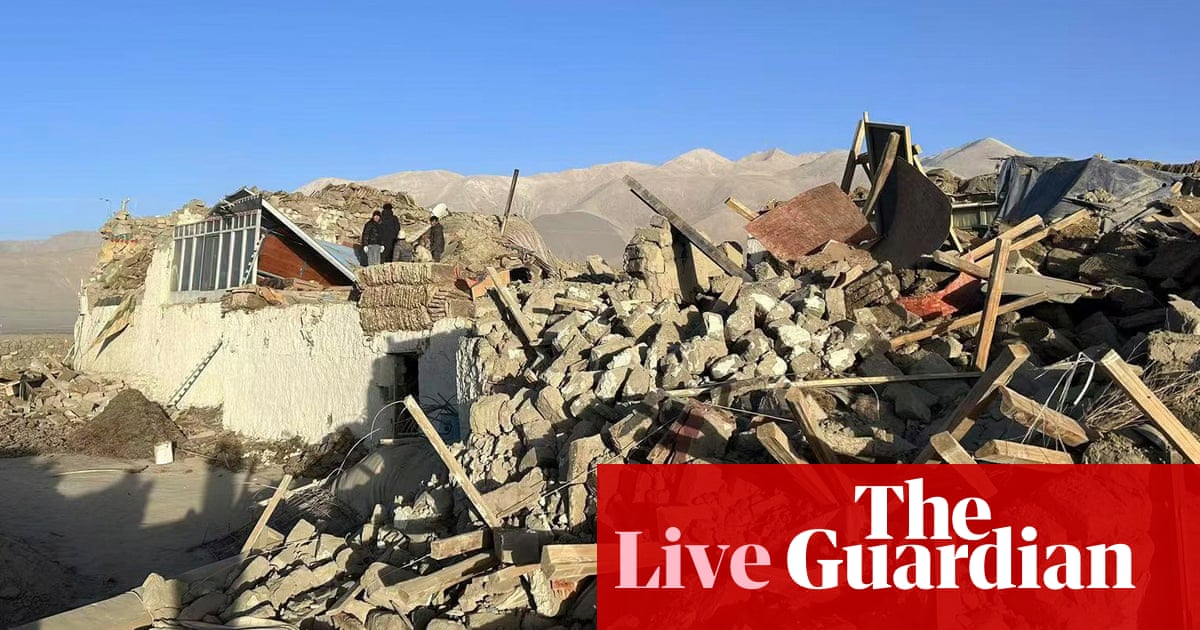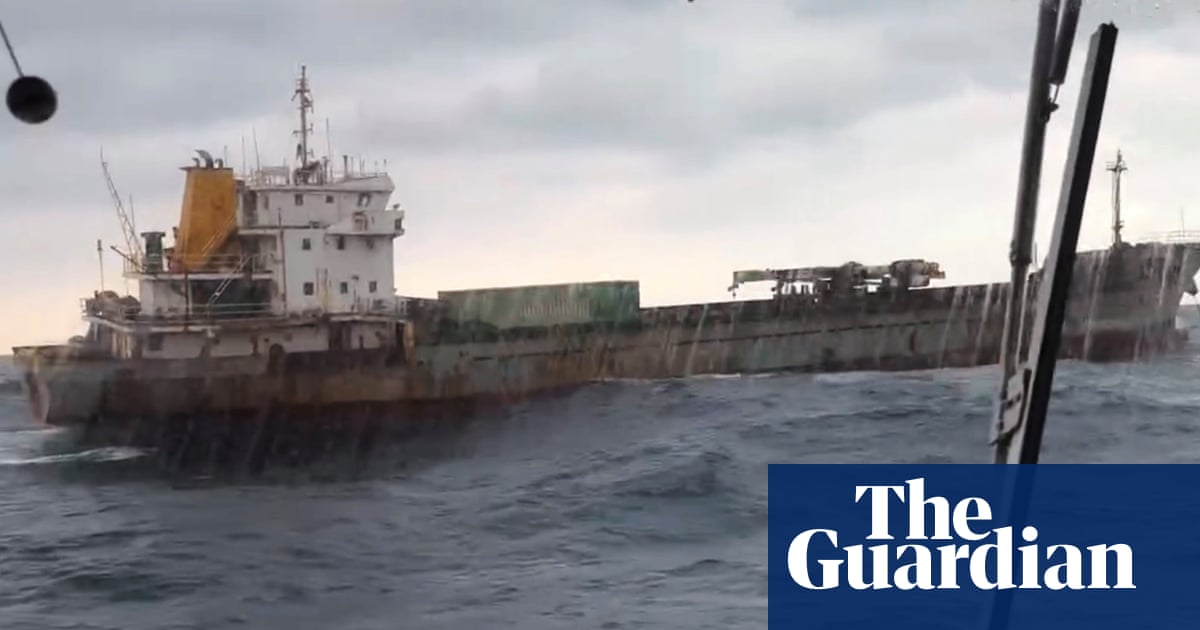On 13 December, two years will have passed since John Njau Kibue died. The circumstances have not been made public but what we know beyond doubt is this: the 24‑year‑old security guard fell from the uppermost concourse at Lusail Stadium three days previously, about two hours after the World Cup quarter-final between Argentina and the Netherlands had finished.
On went the show. Hours after Kibue died Argentina were back at Lusail to face Croatia, thousands of supporters unwittingly walking close to the spot where Kibue landed. Five days after that, Lionel Messi and Kylian Mbappé treated the same venue to the greatest final. Few of those basking in the post-match fireworks or goggling at Salt Bae’s effrontery would have brought Kibue to mind.
Kibue’s sister said he had been working long hours, a fact later corroborated to the Guardian by colleagues. His funeral, back home in Kenya, took place on New Year’s Eve; it was streamed online and has been watched more than 3,500 times. The faces of relatives and friends paying their final respects to his body convey the sheer agony of their loss; a short eulogy later encapsulated the richness this young man had imparted on his loved ones and the community around him.
We may never know exactly how many migrant workers died on stadium and infrastructure projects that served Qatar 2022. This newspaper’s own figures show that at least 6,751 people from a handful of Asian countries died in the country between 2010 and 2020. Statistics from African embassies, such as Kenya’s, have been harder to acquire. It is the grimmest of numbers games that thousands of people simply could not win.
Here is another number: 21,000. It is the total of Nepali, Bangladeshi and Indian workers reported to have died in Saudi Arabia since its Vision 2030 plan was launched in April 2016. That was just one revelation from an ITV documentary, undertaken amid extreme risk, screened on Sunday night. Kingdom Uncovered: Inside Saudi Arabia showed snapshots of a world those reimagining the vast desert state would rather you did not see; images Fifa might prefer you believe are merely a trick of the light. Six and a half weeks before the Saudis’ 2034 World Cup bid goes through on the nod, we really are back here.
It is easy to scoff at some of the stadium designs revealed in the Saudis’ official bid submission three months ago. They’re not seriously going to build a three‑sided venue at the top of a cliff, opening up to reveal a mind-boggling panorama of the country’s most dramatic mountain range? Surely nobody could follow through on an arena 350 metres above the ground in a city called Neom, 110 miles long and 200 metres wide, that has not been built yet?
Saudi Arabia has already made a mockery of anyone doubting whether, when something needs doing, it will be made to happen at all costs. Take the example of Neom, on which the ITV programme dwells at particular and appropriate length. It detailed how much of the land earmarked for the project was inhabited by the Huwaitat tribe, many of whom were subjected to forced evictions and brutality in order that the land be cleared for construction. The earth on which the Saudi government’s flagship scheme is being built was scorched without compromise. The documentary paints a bleak enough picture but anyone minded to discover exactly what happened here would be advised to read a report, The Dark Side of Neom, by the local human rights organisation ALQST, which details the human cost of staging World Cup fixtures in mid-air.
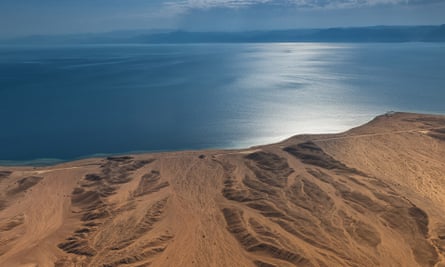
Or maybe only some of it. Because we are taken to modern-day Neom, where railway tunnels are being bored and an interminable trench cleaves. The project is already running behind schedule, with timescales stretching and suggestions that elements of the project are being scaled back. So how might this megacity be ready to host an elite football tournament in time?
Answers on a postcard. “We are treated like beggars,” one anonymous worker tells ITV’s undercover reporter, explaining that he regularly works 16-hour days and goes two weeks without a day off. “There is little time to rest. We get tired. We suffer from anxiety day and night.” A driver says workers in his field receive barely four hours’ sleep and that accidents are commonplace. Neom says it is “assessing the claims made in this programme and, where required, will take appropriate action”, adding: “We require all contractors and subcontractors to comply with Neom’s code of conduct, based on the laws of Saudi Arabia.”
The abuses are not confined to Neom. We visit the heartbroken family of Raju, a Nepali whose death in a camp for workers in Jeddah sparked furious protests. His family and colleagues say in the film he had been ill for two months and was refused adequate medical treatment. There are filthy scenes from another camp run by a company with a dozen government contracts, where workers have run out of food and describe being “trapped like slaves”. We also meet the sister of a jailed women’s rights campaigner and are forced to confront unthinkable horrors occurring in migrant detention centres.
after newsletter promotion
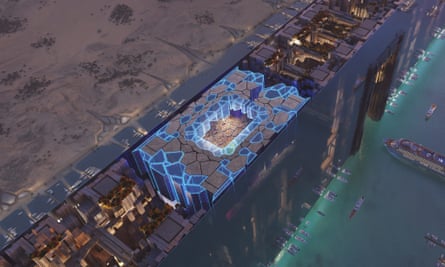
If this bothers you, or if you are concerned that the thousands of traumatic and unheard stories from Qatar resemble a light warm-up for the scale of tragedy that risks unfolding in the service of Saudi Arabia 2034 and its adjacent projects, there may be little time to stop the train. On 11 December the tournament will be waved through in a packaged vote that will award the 2030 and 2034 editions, both of which are unopposed, simultaneously. Any federation opposing the Saudi bid would also risk derailing the sprawling centenary event planned for six years’ time.
Perhaps a subset believe this is hysteria and are confident that the human rights report Fifa commissioned from the law firm Clifford Chance, heavily criticised by Amnesty International, is enough to soothe consciences.
There will be fresh bread and elaborate, futuristic circuses to tuck into as the 2034 project ramps up. But there will be new figures, too. It is worth keeping that running total of 21,000 in mind. And it is worth thinking of people such as Kibue, a football obsessive whose life amounted to infinitely more than a number, while wondering how the sport can bring itself to sanction such suffering all over again.

.png) 2 months ago
22
2 months ago
22







